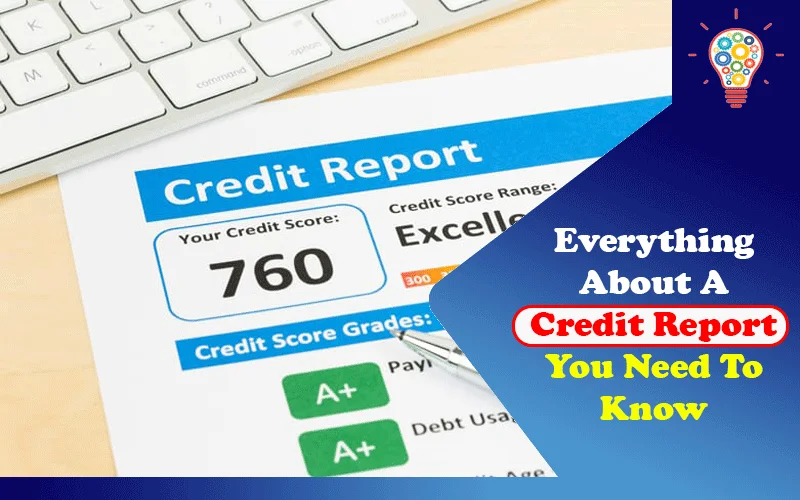Your credit report refers to a record of the current and past debts and includes your payment history. This report is crucial because it can affect many areas of your life like your liability to purchase a car or house, rent an apartment, get a loan, and even be employed for certain jobs.
Unfortunately, only a few people consider checking their credit reports regularly. Most financial experts recommend that it’s a good idea to check your credit report at a minimum of once every 12 months. This article discusses everything a credit report you need to know about.
What a credit report is used for
There are many businesses that check your credit report so that they can make decisions about you. For example, banks can check it before they decide to approve you for loans and credit cards, including auto and mortgages financing. Potential landlords can also check your credit report before they decide whether or not to rent to you. There are also some employers that even review your credit report during the job application process.
As you can see, your credit report can be the source of crucial information that can be utilized to calculate your credit score. This is usually a three-digit number usually used by some lenders to determine the chances that you can default or pay back a loan. They can use your credit score in addition to, or instead of your credit report.
A high credit score usually means that your credit report has positive information. On the other hand, a low credit score shows that there is the presence of negative information. In most cases, the higher the credit score, the better the chances of getting your loan approved.
Also, read the benefits for consumer credit report.
The features in a credit report
While checking your credit report, you will notice that your credit report comes with some basic identifying information, such as your name, place of employment, and address. It can also have detailed information about your account history, debts, credit inquiries, and public records.
You can sometimes view some misspellings of your name or even other incorrect details on your credit report. This can be because of a reporting error, and it can also be an indication of identity theft. Therefore, it’s important to report and dispute such errors once you notice them.
The credit report also indicated your account histories like for loans and credit cards. This can include information like the date you opened an account, your loan amounts or credit limits, your payment history, your account balances, and many more.
A credit report can also include all the businesses that may have reviewed your credit history in the past years. These businesses tend to do this because of the application you submitted or simply because the company was pre-qualifying you for a promotion.
Remember that these credit checks are also called inquiries, which can be hard or soft inquiries. Hard inquiries can be because of a loan application you make and may affect your credit score. On the other hand, soft inquiries may not affect your credit score and can happen when a potential employer checks your credit report.
Read Also: How to Get an Annual Credit Report and Make Better Financial Choices

